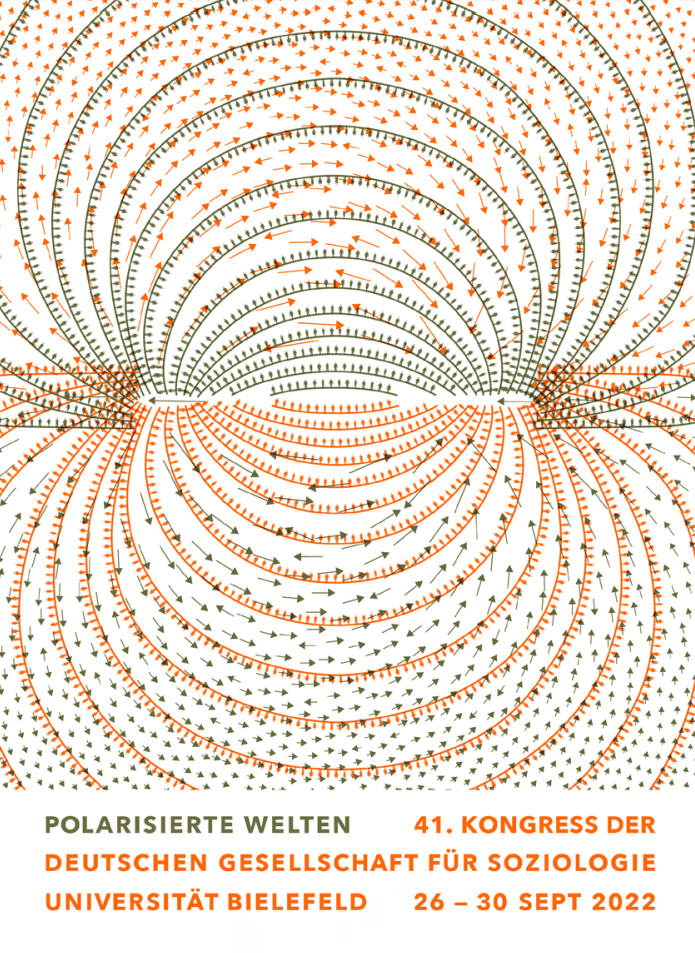Predictive Policing
Performative Kriminalitätsprognosen zwischen Undurchsichtigkeit und Granularisierung
DOI:
https://doi.org/10.21241/ssoar.98934Schlagwörter:
Prognosen, Algorithmen, Polizei, Algorithmische Vorhersage, Vorhersagen, Granularisierung, PerformativitätAbstract
In der polizeilichen Arbeit werden algorithmische Prognosen seit einigen Jahren im Rahmen von Predictive Policing angewendet. Es handelt sich dabei vor allem um Kriminalitätsprognosen, die raumzeitliche Vorhersagen von Wohnungseinbruchdiebstählen tätigen sollen. Diese sind, so argumentieren wir in unserem Beitrag, mit performativen Effekten, im Sinne von self-destructing prophecies, verbunden. Dabei werden bisweilen komplexe machine learning-Algorithmen genutzt, die auch für die Anwender:innen selbst undurchsichtig sein können. Mit ihnen geht nicht zuletzt eine Granularisierung Präventionsziele polizeilicher Arbeit einher.
Literaturhinweise
Bennett Moses, Lyria, und Janet Chan. 2018. Algorithmic prediction in policing: Assumptions, evaluation, and accountability. Policing and Society 28:806–822.
Brayne, Sarah. 2017. Big Data surveillance: The case of policing. American Sociological Review 82:977–1008.
Brayne, Sarah. 2021. Predict and surveil: Data, discretion, and the future of policing. New York, NY: Oxford University Press.
Cevolini, Alberto. 2023. Personalisierte Versicherung. In: Polarisierte Welten. Verhandlungen des 41. Kongresses der Deutschen Gesellschaft für Soziologie 2022, Hrsg. Paula-Irene Villa Braslavsky. https://publikationen.soziologie.de/index.php/kongressband_2022
Egbert, Simon. 2023. Social Sorting on Steroids? Die Gesellschaftlichen Risiken des Personenbezogenen Predictive Policings. In: Automatismen des Verdachts: Polizeikultur und Prognose in der Migrationsgesellschaft, Hrsg. Georgiana Banita. Frankfurt am Main; New York: Campus (im Erscheinen).
Egbert, Simon, und Maximilian Heimstädt. 2023. Algorithmic chains of translation: Predictive policing and the need for team-based ethnography Routledge. In: Situated AI – Global Ethnographies of New Technologies in Policing and Justice., Hrsg. Maya Avis, Daniel Marciniak und Maria Sapignoli. Abingdon; New York: Routledge (im Erscheinen).
Egbert, Simon, und Karolin Kornehl. 2022. Kommerzielle Software vs. Eigenentwicklung. Verbreitung und Ausgestaltung von Predictive Policing in Deutschland. Kriminologisches Journal 54:83–107.
Egbert, Simon, und Susanne Krasmann. 2020. Predictive policing: not yet, but soon preemptive? Policing and Society 30: 905–919.
Egbert, Simon, und Matthias Leese. 2021. Criminal Futures: Predictive Policing and Everyday Police Work. 1. Aufl. London & New York: Routledge.
Egbert, Simon, und Monique Mann. 2021. Discrimination in Predictive Policing: The (dangerous) myth of impartiality and the need for STS Analysis. In: Automating Crime Prevention, Surveillance, and Military Operations, Hrsg. Aleš Završnik und Vasja Badalič, 25–46. Cham: Springer International Publishing.
Ensign, Danielle, Sorelle A. Friedler, Scott Neville, Carlos Scheidegger und Suresh Venkatasubramanian. 2017. Runaway feedback loops in Predictive Policing. arXiv:1706.09847 [cs, stat].
Esposito, Elena. 2023. Die Zukunft der Prädiktion. Einführung. In: Polarisierte Welten. Verhandlungen des 41. Kongresses der Deutschen Gesellschaft für Soziologie 2022, Hrsg. Paula-Irene Villa Braslavsky. https://publikationen.soziologie.de/index.php/kongressband_2022.
Esposito, Elena. 2021. Unpredictability. In: Uncertain Archives, Hrsg. Nanna Bonde Thylstrup, Daniela Agostinho, Annie Ring, Catherine D’Ignazio und Kristin Veel, 533–540. Cambridge: The MIT Press.
Ferguson, Andrew G. 2017. The rise of big data policing: Surveillance, race, and the future of law enforcement. New York: New York University Press.
Hardyns, Wim, und Anneleen Rummens. 2018. Predictive Policing as a new tool for law enforcement? Recent developments and challenges. European Journal on Criminal Policy and Research 24:201–218.
Heimstädt, Maximilian, Simon Egbert und Elena Esposito. 2021. A pandemic of prediction: On the circulation of contagion models between public health and public safety. Sociologica 14:1–24.
Hofmann, Dominik. 2023. Prädiktion in der Präzisionsmedizin. In: Polarisierte Welten. Verhandlungen des 41. Kongresses der Deutschen Gesellschaft für Soziologie 2022, Hrsg. Paula-Irene Villa Braslavsky. https://publikationen.soziologie.de/index.php/kongressband_2022
Kaufmann, Mareile, Simon Egbert und Matthias Leese. 2019. Predictive Policing and the politics of patterns. The British Journal of Criminology 59:674–692.
O’Neil, Cathy. 2016. Weapons of math destruction: How big data increases inequality and threatens democracy. First edition. New York: Crown.
Ratcliffe, Jerry H., Ralph B. Taylor und Ryan Fisher. 2020. Conflicts and congruencies between predictive policing and the patrol officer’s craft. Policing and Society 30:639–655.
Sandhu, Ajay, und Peter Fussey. 2021. The ‘uberization of policing’? How police negotiate and operationalise predictive policing technology. Policing and Society 31:66–81.
Saunders, Jessica, Priscillia Hunt und John S. Hollywood. 2016. Predictions put into practice: a quasi-experimental evaluation of Chicago’s predictive policing pilot. Journal of Experimental Criminology 12:347–371.
Sommerer, Lucia M. 2020. Personenbezogenes Predictive Policing: kriminalwissenschaftliche Untersuchung über die Automatisierung der Kriminalprognose. 1. Auflage. Baden-Baden: Nomos.
Strikwerda, Litska. 2021. Predictive policing: The risks associated with risk assessment. The Police Journal: Theory, Practice and Principles 94:422–436.
Waardenburg, Lauren, Marleen Huysman und Anastasia V. Sergeeva. 2022. In the land of the blind, the one-eyed man is king: Knowledge brokerage in the age of learning algorithms. Organization Science 33:59–82.
Wilson, Dean. 2017. Algorithmic patrol. The futures of predictive policing. In: Big Data, Crime and Social Control, Hrsg. Aleš Završnik, 108–127. Abingdon/New York: Routledge.
Downloads
Veröffentlicht
Ausgabe
Rubrik
Lizenz
Copyright (c) 2023 Polarisierte Welten. Verhandlungen des 41. Kongresses der Deutschen Gesellschaft für Soziologie 2022

Dieses Werk steht unter der Lizenz Creative Commons Namensnennung - Nicht-kommerziell 4.0 International.
Beiträge im Verhandlungsband des 41. Kongresses der Deutschen Gesellschaft für Soziologie in Bielefeld werden unter der Creative Commons Lizenz "Namensnennung-Nicht kommerziell 4.0 International (CC BY-NC 4.0)" veröffentlicht.
Dritte dürfen die Beiträge:
-
Teilen: in jedwedem Format oder Medium vervielfältigen und weiterverbreiten
-
Bearbeiten: remixen, verändern und darauf aufbauen
unter folgenden Bedingungen:
-
Namensnennung: Dritte müssen angemessene Urheber- und Rechteangaben machen, einen Link zur Lizenz beifügen und angeben, ob Änderungen vorgenommen wurden
-
Nicht kommerziell: Dritte dürfen das Material nicht für kommerzielle Zwecke nutzen





